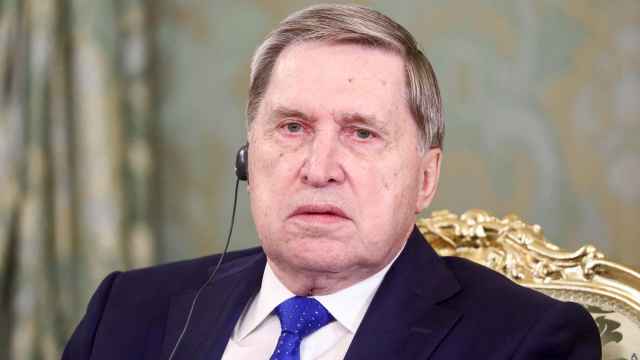LONDON — Europe's fragmented gas market is unable to respond to sudden shocks like this month's extreme cold that caused demand to surge, the export chief of Gazprom said, adding that the EU should give it better access to pipeline infrastructure.
Several European countries received less natural gas than requested from Russia during the worst cold spell in decades, as gas export monopoly Gazprom had to meet a mountain of requests from abroad and inside Russia.
Although it could not deliver the higher requested amounts, Russia met its contractual obligations with European customers, Alexander Medvedev, head of the company's export arm, said in an interview.
"The overall deviation [in physical gas deliveries] from application didn't exceed 15 percent," Medvedev said.
Flexibility clauses built into long-term supply deals give Gazprom leeway in adjusting deliveries to Europe based on circumstances, but this also triggers financial penalties when flow rates drop below full requested volumes.
The penalties are minimal compared with the penalties Gazprom has to pay if supplies drop below minimum contractual obligations, which has never happened, Medvedev said.
Gazprom supplies customers mainly under decades-long supply deals.
"The spot market has demonstrated its low liquidity again. … It does not have enough liquidity to help with physical supply," he said, adding that spot market signals are not an adequate mechanism for anticipating or correcting supply shocks.
He said the EU should rethink its strategy of limiting the access of producers like Gazprom to pipeline infrastructure to avoid future supply crunches.
"And I believe we will discuss it with European colleagues based on the results of how supply went this last week," Medvedev said.
Russia currently supplies Europe with more than a quarter of its gas needs and that share is forecast to grow further as falling production from maturing fields in the North Sea increases Europe's reliance on imports.
Gazprom expects to grab increasing share of the European market, rising from 27 percent last year to 30 percent by 2020 and to 32 percent by 2030, according to forecasts it delivered to investors in Moscow last week.
Many utilities have asked for concessions from Gazprom after incurring multibillion-euro losses in 2011 stemming from very high long-term contract prices.
Top of their wish list is a reduction in the proportion of the gas that is indexed to oil prices in favor of more spot-indexed pricing of gas, making the fuel cheaper.
"In the first renegotiations after the 2008 crisis, we introduced spot volumes into our contracts," which were traded separately and did not impact the oil-link formula, he said.
The spot volumes are priced using a combination of day-ahead and forward gas prices at key European hubs, factoring in the impact of different supply corridors, Medvedev said.
Gazprom also altered the formula it uses to price long-term supplies of gas in the second round of negotiations with utilities, he said.
"The outcome of this was that the new average weighted price went down by no more than 10 percent," he said.
A Message from The Moscow Times:
Dear readers,
We are facing unprecedented challenges. Russia's Prosecutor General's Office has designated The Moscow Times as an "undesirable" organization, criminalizing our work and putting our staff at risk of prosecution. This follows our earlier unjust labeling as a "foreign agent."
These actions are direct attempts to silence independent journalism in Russia. The authorities claim our work "discredits the decisions of the Russian leadership." We see things differently: we strive to provide accurate, unbiased reporting on Russia.
We, the journalists of The Moscow Times, refuse to be silenced. But to continue our work, we need your help.
Your support, no matter how small, makes a world of difference. If you can, please support us monthly starting from just $2. It's quick to set up, and every contribution makes a significant impact.
By supporting The Moscow Times, you're defending open, independent journalism in the face of repression. Thank you for standing with us.
Remind me later.





